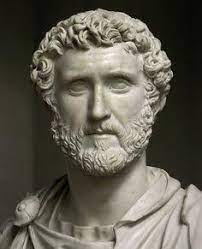
Herophilus was born c. 335 BC, Chalcedon, Bithynia, and died in bc. 280), He was an Alexandrian physician who was an early performer of public dissections on human cadavers, and was often called the father of anatomy.
The Greek physician was regarded as one of the earliest anatomists. Born in Chalcedon, he spent the majority of his life in Alexandria. He was the first scientist to systematically perform dissections of human cadavers.
As a member of the well-known scholastic community in the newly founded city of Alexandria during the single, brief period in Greek medical history when the ban on human dissection was lifted, Herophilus studied the ventricles (cavities) of the brain, the organ he regarded as the center of the nervous system; traced the sinuses of the dura mater (the tough membrane covering the brain) to their junction, known as the circular Herophili; and classified the nerve trunks—distinguishing them from tendons and blood vessels—as motor or sensory.
This Greek doctor and philosopher said, “When health is absent, wisdom cannot reveal itself, art cannot manifest, strength cannot fight, wealth becomes useless and intelligence cannot be applied.”